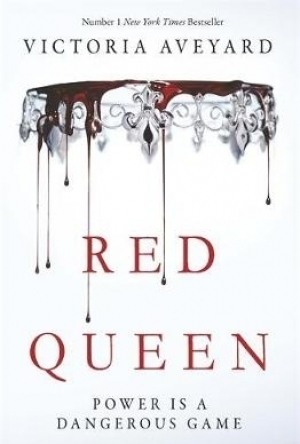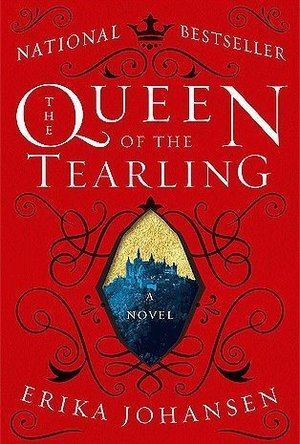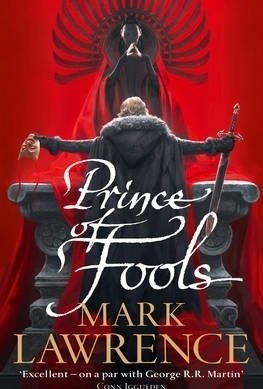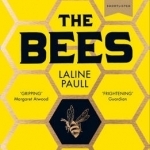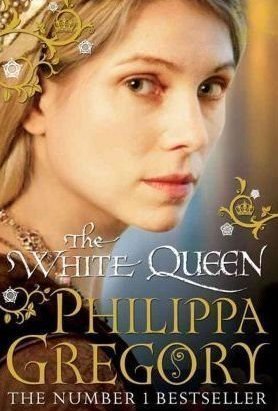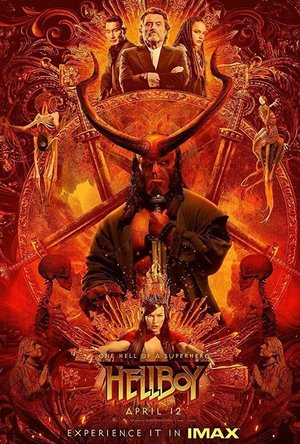Search
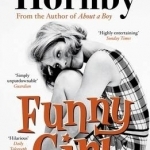
Funny Girl
Book
Funny Girl - the latest novel from Nick Hornby, the million-copy bestselling author of About a Boy...
The world is ruled by Silvers, with their shining blood and abilities. The Red have no special powers are seen as lesser. They are relegated to perpetual poverty, while the Silbers live lives of luxury. But what happens when a Red manifests abilities in an arena filled with noble Silvers? They make her a future princess of course, but it's not the fairy tale it sounds like.
Mare is thrust into a world she never wished for and doesn't fit into. She is given no choice but to accept. There is much to learn about her abilities and how to control them. The one demand she made was to ensure the safety and well-being of her family. Her brothers are called home from the war, but not soon enough to save all of them. <spoiler> One was a member of a rebel/revolutionary group and was executed for it. </spoiler> This pushes Mare over the edge and she joins the rebel group, the Scarlet Guard.
It's intriguing to learn what each person has the ability to do. The control over water, manipulation of light, healing, mind-reading and more. But it's very off-putting and juvenile when the author refers to them as greenies or telkies. It sounds more like a two-year-old naming their stuffed bear Brownie or Fluffy than an author giving life to special abilities.
The world is not our own, so it would be nice to learn more about it. Unfortunately, Mare is not very learned and we must view the world through her lens. It would be fascinating to be given a history, geography and culture lesson from Julian in novella form. What does their domain look like? What about the surrounding kingdoms, their rulers, ruling abilities and geography? How did these new borders come to be? (It is mentioned that the borders were not always the way they are currently.) Overall, the world building is pretty good but could be improved (which it does later in the book.) The physical descriptions of the towns the royals pass on their way to the palace late in the story are good and allow the reader to immese themselves in the world more fully.
The princes are, unsurprisingly good people despite the harshness of the King and Queen. <spoiler> Or at least appear to be that way in the beginning, but it does not last. </spoiler> The future love interest(s) must be liked by the reader. Mare herself is harsh and quick-tempered by likable nonetheless. Though she has no choice in her future, she assures her family's well-being and that shows she has a good heart.
Of course, our protagonist catches the attention of not just one but two princes. The older and future King, Cal, wants to be a good ruler so he secretly ventures out in public to learn and experience his people outside the reports of advisors. He even decides to send a group of Silver soldiers to the front line and chooses to lead them. It may win the war, but it could also kill him. The younger, forever shadowed brother Maven believes that Reds and Silvers are equals. He even joins the Scarlet Guard to help propel change and spark a revolution.
Anyone can betray anyone.
The Scarlet Guard secrets Maven and Mare out of a play and transports them to another town just to have a conversation. Clearly the travel and discussion would take a significant amount of time and yet no one wonders where they are. The return trip and the play ending are just completely skipped. It was abrupt and didn't seem well-thought out.
The book ends with betrayal and bloodshed. But it also ends with a promise and the hope that not all is lost. It makes me want to begin the next book immeiate. Highly recommended book to fans of YA novels with good world building and character development that deal with monarchical rule and upheavals as well as people with special abilities.
Mare is thrust into a world she never wished for and doesn't fit into. She is given no choice but to accept. There is much to learn about her abilities and how to control them. The one demand she made was to ensure the safety and well-being of her family. Her brothers are called home from the war, but not soon enough to save all of them. <spoiler> One was a member of a rebel/revolutionary group and was executed for it. </spoiler> This pushes Mare over the edge and she joins the rebel group, the Scarlet Guard.
It's intriguing to learn what each person has the ability to do. The control over water, manipulation of light, healing, mind-reading and more. But it's very off-putting and juvenile when the author refers to them as greenies or telkies. It sounds more like a two-year-old naming their stuffed bear Brownie or Fluffy than an author giving life to special abilities.
The world is not our own, so it would be nice to learn more about it. Unfortunately, Mare is not very learned and we must view the world through her lens. It would be fascinating to be given a history, geography and culture lesson from Julian in novella form. What does their domain look like? What about the surrounding kingdoms, their rulers, ruling abilities and geography? How did these new borders come to be? (It is mentioned that the borders were not always the way they are currently.) Overall, the world building is pretty good but could be improved (which it does later in the book.) The physical descriptions of the towns the royals pass on their way to the palace late in the story are good and allow the reader to immese themselves in the world more fully.
The princes are, unsurprisingly good people despite the harshness of the King and Queen. <spoiler> Or at least appear to be that way in the beginning, but it does not last. </spoiler> The future love interest(s) must be liked by the reader. Mare herself is harsh and quick-tempered by likable nonetheless. Though she has no choice in her future, she assures her family's well-being and that shows she has a good heart.
Of course, our protagonist catches the attention of not just one but two princes. The older and future King, Cal, wants to be a good ruler so he secretly ventures out in public to learn and experience his people outside the reports of advisors. He even decides to send a group of Silver soldiers to the front line and chooses to lead them. It may win the war, but it could also kill him. The younger, forever shadowed brother Maven believes that Reds and Silvers are equals. He even joins the Scarlet Guard to help propel change and spark a revolution.
Anyone can betray anyone.
The Scarlet Guard secrets Maven and Mare out of a play and transports them to another town just to have a conversation. Clearly the travel and discussion would take a significant amount of time and yet no one wonders where they are. The return trip and the play ending are just completely skipped. It was abrupt and didn't seem well-thought out.
The book ends with betrayal and bloodshed. But it also ends with a promise and the hope that not all is lost. It makes me want to begin the next book immeiate. Highly recommended book to fans of YA novels with good world building and character development that deal with monarchical rule and upheavals as well as people with special abilities.
Erika Kehlet (21 KP) rated The Queen of the Tearling in Books
Feb 19, 2018
I finished this audiobook a while ago and put off writing the review because I couldn't decide how I felt about it. I went back and forth between 2 and 3 stars for a while. There were several things about the story that really bothered me (making me feel like it only deserved 2 stars), but then there were times when I was interested enough to think that I would need to read book two to see what happens. When all was said and done, I did decide I might read the next book at some point, so three stars it is.
A note about setting
The book sounds like any other fantasy novel. This story actually takes place in a future where for some reason (we are never told exactly what happened), a group of people have fled America and moved to a new land (again, we don't know how there was a new land available for them to colonize...) leaving all technology and modern conveniences behind them.
What bothered me about the book
Is it young adult or not? Occasionally the language, violence, or other crudeness seemed inappropriate for all but the most mature of teens, but then Kelsea would act like a nineteen year old girl, she spent an awful lot of time obsessing over her plain appearance, how handsome each of her guards happened to be, etc..., so I could never really tell.
Where / when is it? We get bits and pieces mentioning "the crossing", but why? What happened? Is there still an America with technology somewhere? Where are the main characters now? If the Capital is New London, are they anywhere near old London? How is there magic? And who is this enemy, this evil Mort/Red Queen who seems to have an abundance of it? I can go on and on here, and the lack of details or explanation about this world they are living in is my biggest complaint.
What I liked about the book
Kelsea, when she could remember not to worry about her plain face or how greasy her hair looked, actually had a decent moral compass and wanted to do what was right for her new-found kingdom, not just what was easy or convenient for her. She was stubborn and idealistic, and I admired those traits in her. I even eventually grew to like some of her guards, the Mace and Pen in particular, as they finally learned to respect her and some of her ideas near the end of the story.
Will you like this book?
I wish I could say yes, but the best I can do is maybe. If you go into it knowing that you are not going to understand exactly where this world is, how it came about, or why, and that doesn't bother you, then you just might. I will give book two a try to see if there are more details forthcoming, but not right away.
A note about setting
The book sounds like any other fantasy novel. This story actually takes place in a future where for some reason (we are never told exactly what happened), a group of people have fled America and moved to a new land (again, we don't know how there was a new land available for them to colonize...) leaving all technology and modern conveniences behind them.
What bothered me about the book
Is it young adult or not? Occasionally the language, violence, or other crudeness seemed inappropriate for all but the most mature of teens, but then Kelsea would act like a nineteen year old girl, she spent an awful lot of time obsessing over her plain appearance, how handsome each of her guards happened to be, etc..., so I could never really tell.
Where / when is it? We get bits and pieces mentioning "the crossing", but why? What happened? Is there still an America with technology somewhere? Where are the main characters now? If the Capital is New London, are they anywhere near old London? How is there magic? And who is this enemy, this evil Mort/Red Queen who seems to have an abundance of it? I can go on and on here, and the lack of details or explanation about this world they are living in is my biggest complaint.
What I liked about the book
Kelsea, when she could remember not to worry about her plain face or how greasy her hair looked, actually had a decent moral compass and wanted to do what was right for her new-found kingdom, not just what was easy or convenient for her. She was stubborn and idealistic, and I admired those traits in her. I even eventually grew to like some of her guards, the Mace and Pen in particular, as they finally learned to respect her and some of her ideas near the end of the story.
Will you like this book?
I wish I could say yes, but the best I can do is maybe. If you go into it knowing that you are not going to understand exactly where this world is, how it came about, or why, and that doesn't bother you, then you just might. I will give book two a try to see if there are more details forthcoming, but not right away.
Phil Leader (619 KP) rated Prince of Fools in Books
Nov 25, 2019
Mark Lawrence's previous Broken Empire trilogy was a terrific read, starring as it did an almost perfect anti-hero in shape of Jorg Ancrath, a character who in any other books would have been the major villain.
It was hard to see where Lawrence could go from there. The answer is 'up'. Set in the same world as Broken Empire the events in Prince of Fools take place at roughly the same time as those of Prince of Thorns but following someone who is manipulated by a different set of players than Jorg.
Prince Jalan is the grandson of the Red Queen. He is too far from the throne to have to think seriously about ruling but close enough that he can rely on his rank to provide him a life of luxury - and to get him out of trouble if needs be. He is indolent, self-centered and vain and spends his time either drinking, gambling or trying to bed various women. He describes himself at the start of the book as 'A liar, a cheat and a coward' and he certainly always tries to take the easy path through anything and avoid any actual work or responsibilities.
But things are about to change. He ends up being forced to leave the comforts of court and city life and travel with a companion he doesn't care for on a quest he has no interest in. But he follows along, complaining all the way and plotting on ways to return to the life of leisure and pleasure that he craves.
Whereas Jorg's general reaction to someone in his way is to kill them, Jalan will wheedle, plead or just plain bribe them to get what he wants and on the rare occasions he has to wield a sword he is so shockingly incompetent he is actually dangerous.
The story is excellent; there is a definite impetus and personal reason for the quest and a final showdown in which a terrible truth is revealed. More of the fate of the Broken Empire is revealed as Jalan and his companion travel across it, as well as more of the geography. Jalan's dislike for travel is clear and the descriptions are coloured by his perceptions - it's always too wet or too cold or too flat or too mountainous.
There are some terrific scenes with Lawrence's black humour very much to the fore as in the previous books. There are meetings with characters from the previous trilogy that are like meeting old friends (and yes Jorg and Jalan do cross storylines at a crucial point for both of them).
I would absolutely recommend this book to anyone looking for a great story with absorbing characters, laugh out loud humour and great battle scenes. If you liked Jorg read this book. If you like zombies read this book. If you like vikings read this book. Actually, just read the book. You won't regret it.
It was hard to see where Lawrence could go from there. The answer is 'up'. Set in the same world as Broken Empire the events in Prince of Fools take place at roughly the same time as those of Prince of Thorns but following someone who is manipulated by a different set of players than Jorg.
Prince Jalan is the grandson of the Red Queen. He is too far from the throne to have to think seriously about ruling but close enough that he can rely on his rank to provide him a life of luxury - and to get him out of trouble if needs be. He is indolent, self-centered and vain and spends his time either drinking, gambling or trying to bed various women. He describes himself at the start of the book as 'A liar, a cheat and a coward' and he certainly always tries to take the easy path through anything and avoid any actual work or responsibilities.
But things are about to change. He ends up being forced to leave the comforts of court and city life and travel with a companion he doesn't care for on a quest he has no interest in. But he follows along, complaining all the way and plotting on ways to return to the life of leisure and pleasure that he craves.
Whereas Jorg's general reaction to someone in his way is to kill them, Jalan will wheedle, plead or just plain bribe them to get what he wants and on the rare occasions he has to wield a sword he is so shockingly incompetent he is actually dangerous.
The story is excellent; there is a definite impetus and personal reason for the quest and a final showdown in which a terrible truth is revealed. More of the fate of the Broken Empire is revealed as Jalan and his companion travel across it, as well as more of the geography. Jalan's dislike for travel is clear and the descriptions are coloured by his perceptions - it's always too wet or too cold or too flat or too mountainous.
There are some terrific scenes with Lawrence's black humour very much to the fore as in the previous books. There are meetings with characters from the previous trilogy that are like meeting old friends (and yes Jorg and Jalan do cross storylines at a crucial point for both of them).
I would absolutely recommend this book to anyone looking for a great story with absorbing characters, laugh out loud humour and great battle scenes. If you liked Jorg read this book. If you like zombies read this book. If you like vikings read this book. Actually, just read the book. You won't regret it.
Louise (64 KP) rated Mad About the Hatter in Books
Jul 2, 2018
I received a free copy of this book to review from Netgalley.
Hatter has been kept prisoner in the red queens dungeons for longer than he can remember. Eventually the day has come, he has been summoned by the Queen herself what can only be for none the less a beheading as everyone knows this is her favourite pastime. To the Hatters amazement she is sparing his head by striking a deal that he can’t refuse (really he can’t refuse) by capturing ‘boy Alice’ – and returning him for a right old head lolloping.
‘Boy Alice’ is in fact Alice’s younger brother Henry(17). He has never believed Alice’s stories of wonderland and always thought she was attention seeking, for which they have never seen eye to eye.
All Henry remembers is Alice apologising after their recent altercation, handing him a glass of punch and telling him to find the Hatter!
Henry finds himself in a mysterious place of oversized flowers and a caterpillar sitting upon a mushroom that speaks in riddles – can it really be Wonderland? Was Alice really an attention seeking twit?.
When Hatter finds Henry they grow to like each other and try to figure a plan to get Henry back to his home but by doing so they have to cross some challenging areas within Wonderland such as the Neverglades and Drawrof, during this adventure the relationship between the Hatter and Henry blossom.
"Rules are merely a fistful of conundrums, obstacles and barriers knotted and twisted together for the sole purpose of sucking the last bit of fun out of every experience"
I loved this book so much! The world-building was amazing that I felt like I was in Wonderland alongside the Hatter and Henry. Every section of Wonderland they crossed was so different from the last and every bit as magical.
The book is only 190 pages so a very fast and easy read. I liked that all the original characters were used and they all had the same traits as from Alice in Wonderland and that new creatures added and were blended in well.
The friendship between Henry and that Hatter was very sweet and heartwarming as they ventured on through the mystical lands and defied death, the feelings for one another become more than companions.
There were some particularly funny moments in the book that did make me laugh out loud as they were quite witty and there were still some essence of nonsense but not as much as Alice in Wonderland.
Alice to me was the only character that I didn’t really feel genuine, it felt a bit forced like she had to been in the book because it was based on Alice in Wonderland by C.S Lewis.
Nearing the end of the book there was a particular cheesy bit that I didn’t really like as it was a bit of a cliché but other than that I thoroughly enjoyed the book. I was sucked in to the magical world that was Wonderland!
I think there is definitely room for a sequel.
"That’s the secret to Wonderland. Believing. It’s what fuels magic"
I would recommend this book for anyone that reads/likes Young Adult and Lite fantasy novels.
I have never read anything else by Dakota Chase, though she has other books published such as ‘Changing Jamie’ and ‘Monster Town’.
Overall I rate this 4 out of 5 stars
Hatter has been kept prisoner in the red queens dungeons for longer than he can remember. Eventually the day has come, he has been summoned by the Queen herself what can only be for none the less a beheading as everyone knows this is her favourite pastime. To the Hatters amazement she is sparing his head by striking a deal that he can’t refuse (really he can’t refuse) by capturing ‘boy Alice’ – and returning him for a right old head lolloping.
‘Boy Alice’ is in fact Alice’s younger brother Henry(17). He has never believed Alice’s stories of wonderland and always thought she was attention seeking, for which they have never seen eye to eye.
All Henry remembers is Alice apologising after their recent altercation, handing him a glass of punch and telling him to find the Hatter!
Henry finds himself in a mysterious place of oversized flowers and a caterpillar sitting upon a mushroom that speaks in riddles – can it really be Wonderland? Was Alice really an attention seeking twit?.
When Hatter finds Henry they grow to like each other and try to figure a plan to get Henry back to his home but by doing so they have to cross some challenging areas within Wonderland such as the Neverglades and Drawrof, during this adventure the relationship between the Hatter and Henry blossom.
"Rules are merely a fistful of conundrums, obstacles and barriers knotted and twisted together for the sole purpose of sucking the last bit of fun out of every experience"
I loved this book so much! The world-building was amazing that I felt like I was in Wonderland alongside the Hatter and Henry. Every section of Wonderland they crossed was so different from the last and every bit as magical.
The book is only 190 pages so a very fast and easy read. I liked that all the original characters were used and they all had the same traits as from Alice in Wonderland and that new creatures added and were blended in well.
The friendship between Henry and that Hatter was very sweet and heartwarming as they ventured on through the mystical lands and defied death, the feelings for one another become more than companions.
There were some particularly funny moments in the book that did make me laugh out loud as they were quite witty and there were still some essence of nonsense but not as much as Alice in Wonderland.
Alice to me was the only character that I didn’t really feel genuine, it felt a bit forced like she had to been in the book because it was based on Alice in Wonderland by C.S Lewis.
Nearing the end of the book there was a particular cheesy bit that I didn’t really like as it was a bit of a cliché but other than that I thoroughly enjoyed the book. I was sucked in to the magical world that was Wonderland!
I think there is definitely room for a sequel.
"That’s the secret to Wonderland. Believing. It’s what fuels magic"
I would recommend this book for anyone that reads/likes Young Adult and Lite fantasy novels.
I have never read anything else by Dakota Chase, though she has other books published such as ‘Changing Jamie’ and ‘Monster Town’.
Overall I rate this 4 out of 5 stars
WHEN golden banded honeybees, so often likened to summer and honey sweetness, become the metaphor of a dystopian version of British Government and the Monarchy, what is one left to think?
Established British playwright Laline Paull’s debut novel, The Bees, represents just that. I may just be reading too much into the buzz, but the Oxford alumni who has had two plays performed at the Royal National Theatre must have some of the country in her subconscious as she writes.
The novel follows the life of worker honeybee Flora 717, born of the lowest class of bee society. In a world where mutation and difference is destroyed on sight, the larger-than-average Flora is saved from destruction by opportunities born from austerity in the hive, where ‘the season is deformed by rain, and the flowers shun’ the bees, so they need every available worker.
The life of the honeybee turns out to be symmetrical of Plato’s Republic and his utopia, where children are told what role they will have in life based on their ‘blood’. Plato divided the bronze craftsman, silver guardians and golden philosophers, and Paull divides bees in their ‘kin’ groups, named after flowers, and are priestesses to police, foragers who can fly outside the hive to the sanitation Flora, the lowest, and are given ‘no flower’. ‘A Flora may not make Wax for she is unclean, nor Propolis for she is clumsy, nor ever may she forage for she has no taste, but only may she serve her hive by cleaning,’ but the talented Flora 717 wants more.
Throughout the novel, Paull shows the same attachment to characters as George R R Martin, author of the Game of Thrones novels; the frequent loss deepens the heartbreak Flora must overcome as she fights to defy her set fate and claim the most illegal of desires. No reader will escape the anguish that concludes each new adventure.
The hive is akin to a cult, with leaders keeping their inferiors in check, with fear, intoxication and just a little hypnosis. The cult is complete with its own religion, mantra and even a parody of the Lord’s Prayer, ‘Hallowed be thy womb’, arguably my favourite part. This made the story really exciting, being on the ‘outside looking in’ as the reader, I wanted to encourage Flora to defy, but felt the fear of going against her sisters (this isn’t a cult bond word, they are all blood sisters, for only ‘the queen may breed’).
Paull’s scriptwriting has nurtured the ability to make the reader visualise her words exactly how she writes them, and that is clear within The Bees. I can see the wax panels that Flora 717 scuttles across as she travels around her hive, I can imagine the wax cribs in the nursery and know the deadly yellow and fine lines of the enemy wasp. In the ‘glass cage’ when Flora discovers the Venus Fly Trap, Paull never mentions the plant by name, but speaks only of their ‘red mouths’ with ‘white filaments’ on each ‘inner lip’, they ‘bore no pollen, the only nectar a viscous slick at the join of the petals’. But for all her beautiful imagery seeping off the pages, The Bees was not a book I have felt submerged in.
Full review on <a href="http://www.natari-himi.com">natari-himi.com</a>;
Established British playwright Laline Paull’s debut novel, The Bees, represents just that. I may just be reading too much into the buzz, but the Oxford alumni who has had two plays performed at the Royal National Theatre must have some of the country in her subconscious as she writes.
The novel follows the life of worker honeybee Flora 717, born of the lowest class of bee society. In a world where mutation and difference is destroyed on sight, the larger-than-average Flora is saved from destruction by opportunities born from austerity in the hive, where ‘the season is deformed by rain, and the flowers shun’ the bees, so they need every available worker.
The life of the honeybee turns out to be symmetrical of Plato’s Republic and his utopia, where children are told what role they will have in life based on their ‘blood’. Plato divided the bronze craftsman, silver guardians and golden philosophers, and Paull divides bees in their ‘kin’ groups, named after flowers, and are priestesses to police, foragers who can fly outside the hive to the sanitation Flora, the lowest, and are given ‘no flower’. ‘A Flora may not make Wax for she is unclean, nor Propolis for she is clumsy, nor ever may she forage for she has no taste, but only may she serve her hive by cleaning,’ but the talented Flora 717 wants more.
Throughout the novel, Paull shows the same attachment to characters as George R R Martin, author of the Game of Thrones novels; the frequent loss deepens the heartbreak Flora must overcome as she fights to defy her set fate and claim the most illegal of desires. No reader will escape the anguish that concludes each new adventure.
The hive is akin to a cult, with leaders keeping their inferiors in check, with fear, intoxication and just a little hypnosis. The cult is complete with its own religion, mantra and even a parody of the Lord’s Prayer, ‘Hallowed be thy womb’, arguably my favourite part. This made the story really exciting, being on the ‘outside looking in’ as the reader, I wanted to encourage Flora to defy, but felt the fear of going against her sisters (this isn’t a cult bond word, they are all blood sisters, for only ‘the queen may breed’).
Paull’s scriptwriting has nurtured the ability to make the reader visualise her words exactly how she writes them, and that is clear within The Bees. I can see the wax panels that Flora 717 scuttles across as she travels around her hive, I can imagine the wax cribs in the nursery and know the deadly yellow and fine lines of the enemy wasp. In the ‘glass cage’ when Flora discovers the Venus Fly Trap, Paull never mentions the plant by name, but speaks only of their ‘red mouths’ with ‘white filaments’ on each ‘inner lip’, they ‘bore no pollen, the only nectar a viscous slick at the join of the petals’. But for all her beautiful imagery seeping off the pages, The Bees was not a book I have felt submerged in.
Full review on <a href="http://www.natari-himi.com">natari-himi.com</a>;
Deborah (162 KP) rated The White Queen (The Plantagenet and Tudor Novels, #2) in Books
Dec 19, 2018
Not quite sure why I decided to read this as the only other book I've read by Gregory was The Other Boleyn Girl, which I thought was pretty dreadful. I suppose I find it difficult to keep away from anything connected with The Wars of the Roses; I certainly found that I'd read almost every book listed in the bibliography and could have recommended a few more that might have been beneficial for the author to have perused.....
While not the worst book I've ever read I know I won't be reading this again and as to The Red Queen - well, I'd probably want to strangle Margaret Beaufort before the first chapter was out, so let's leave it at that shall we.
I do read a lot of historical novels and in general I find that it is much harder for a novel to work well when it is written in the first person, as this is. With a single viewpoint you are restricting yourself and that shows here at several points where the author has to break out of the Elizabeth Woodville narrative to give us a chunk of what is going on elsewhere. I've never found EW a particularly sympathetic historical character and I'm not sure she comes across that well here, either. Certainly in the latter half of the book it's difficult to see what motivation Gregory is ascribing to her.
The family of EW's mother did believe themselves descended from a water goddess and it was not unusual for powerful women to be accused of witchcraft, to discredit either them or their husbands (see Eleanor Cobham). I daresay that mixing of love potions and use of figures and all that sort of thing would have gone on, but the whistling up of storms was going just a bit too far for me. I also thought that the Foreshadowing element of the story was a bit overdone - although that may be because I know too much about the period!
There were also a number of glaring errors and oddities which should have been picked up somewhere down the line. Looks like the favourite one is the anachronistic use of the word 'numpty'! In other places George of Clarence is described as a duke one moment and his wife, Isabel as a countess the next (she would have had that as a subsidiary title, but she was the duchess of Clarence!), an execution was said to have taken place by the axe when the person in question is known to have been hanged, the Parhelion (three suns)are said to have been at Towton when it was in fact at Mortimer's Cross (Towton took place in a snowstorm - I doubt they could see one sun, let alone three!) and Gregory needed to study her history of Barnet a bit more closely as she had her battle lines completely mixed up!
Obviously there are some big gaps in our knowledge, which is grist to the fiction writers mill! I thought her Princes in the Tower solution was interesting and glad to see that she acknowledged that Richard III would have had little to gain from their deaths at this point. Not sure if Lambert Simnel is 'explained' in one of the other books in this series, as EW's part is certainly interesting. Also interesting that although the name of Eleanor Butler is mentioned early on and the anullment of the marriage on grounds of Edward's previous marriage come into play later, the two are never linked by the author and she chooses to offer no comment on this piece of the puzzle.
While not the worst book I've ever read I know I won't be reading this again and as to The Red Queen - well, I'd probably want to strangle Margaret Beaufort before the first chapter was out, so let's leave it at that shall we.
I do read a lot of historical novels and in general I find that it is much harder for a novel to work well when it is written in the first person, as this is. With a single viewpoint you are restricting yourself and that shows here at several points where the author has to break out of the Elizabeth Woodville narrative to give us a chunk of what is going on elsewhere. I've never found EW a particularly sympathetic historical character and I'm not sure she comes across that well here, either. Certainly in the latter half of the book it's difficult to see what motivation Gregory is ascribing to her.
The family of EW's mother did believe themselves descended from a water goddess and it was not unusual for powerful women to be accused of witchcraft, to discredit either them or their husbands (see Eleanor Cobham). I daresay that mixing of love potions and use of figures and all that sort of thing would have gone on, but the whistling up of storms was going just a bit too far for me. I also thought that the Foreshadowing element of the story was a bit overdone - although that may be because I know too much about the period!
There were also a number of glaring errors and oddities which should have been picked up somewhere down the line. Looks like the favourite one is the anachronistic use of the word 'numpty'! In other places George of Clarence is described as a duke one moment and his wife, Isabel as a countess the next (she would have had that as a subsidiary title, but she was the duchess of Clarence!), an execution was said to have taken place by the axe when the person in question is known to have been hanged, the Parhelion (three suns)are said to have been at Towton when it was in fact at Mortimer's Cross (Towton took place in a snowstorm - I doubt they could see one sun, let alone three!) and Gregory needed to study her history of Barnet a bit more closely as she had her battle lines completely mixed up!
Obviously there are some big gaps in our knowledge, which is grist to the fiction writers mill! I thought her Princes in the Tower solution was interesting and glad to see that she acknowledged that Richard III would have had little to gain from their deaths at this point. Not sure if Lambert Simnel is 'explained' in one of the other books in this series, as EW's part is certainly interesting. Also interesting that although the name of Eleanor Butler is mentioned early on and the anullment of the marriage on grounds of Edward's previous marriage come into play later, the two are never linked by the author and she chooses to offer no comment on this piece of the puzzle.

Fashion Dress Up Game for Girls: Beauty Salon
Lifestyle and Games
App
*** Express your sense of fashion and style! *** ** Do you dream about becoming a fashion stylist...

Style Girl! Dress Up Game for Girls and Teens - Fantasy Fashion Salon & Beauty Makeover Studio
Lifestyle and Entertainment
App
*** Hey dolls, welcome to the fantasy game world of fashion styles that will knock you off your...
Charlie Cobra Reviews (1840 KP) rated Hellboy (2019) in Movies
Jul 7, 2020
Entertaining Hell Yes, Great Hell No
Hellboy is a 2019 supernatural superhero movie based on the Dark Horse Comics character created by Mike Mignola. It is the third film in the franchise and is also a reboot of the series. It is directed by Neil Marshall with screenplay by Andrew Cosby and distributed by Lionsgate. The film stars David Harbour, Millar Jovovich, Ian McShane and Daniel Dae Kim.
In the Dark Ages, Nimue, the Blood Queen, nearly destroyed humanity with a deadly plague. Immortal, she was only defeated by King Arthur with the help of Merlin and the magical blade Excalibur. She was beheaded, dismembered, and her remains scattered over Europe. In present day Tijuana, Hellboy (David Harbour), searches for a missing B.P.R.D. agent, Ruiz. Hellboy discovers Ruiz has been turned into a vampire and while trying to reason with him, Hellboy is forced into a confrontation which ultimately leads to the death of the agent. Meanwhile a mysterious person speaks with Baba Yaga, a witch-like creature, seeking revenge on Hellboy, and is told to locate the remains of Nimue and resurrect her.
This has been a really hard movie for me to review. I genuinely enjoyed it while watching it in theaters. That being said, this movie is a train wreck and I can't recommend for people to spend money to see it unless you wait for it to be at the dollar movies or Redbox. There were just so many things that I guess I was blind to while watching it, that i just shrugged off or didn't pay much attention to. Like all my reviews this will be as spoiler free as possible but i have to acknowledge major flaws that other critics and reviewers brought up. And there were a lot, I mean right now the critics are tearing this movie a new one. First, I thought David Harbour did as good a job as anyone could do replacing Ron Pearlman as Hellboy in this film. But replacing such a beloved and likeable character with a funny and charismatic personality which Pearlman made his own, he had his work cut out for him. I don't think he's ever acted with all the makeup and prosthetics and it showed because I don't think he was as expressive as he could have been. Plus this movie was also made with a different director and not Guillermo Del Toro, so it was already going to have a way different feel to it. To me though, those weren't the things that contributed the most to the failure of this movie, it's more of the other things I'm still getting to. This was a reboot of the series and they decided to go with a different group of supporting characters, and to also make the plot or story more closely related or similar to the comics (the source material). Now usually sticking with what the comics have for the story is always better than changing it in my opinion but it seems for this film that they chose to incorporate several different storylines and characters and felt like it was too much crammed into too little. Also this movie was all over the place, story wise and literally. It seemed the characters kept having to travel unnecessarily. It felt like the supporting characters were just thrown into the story and it didn't bother to introduce them to the audience correctly. Everyone just got a flashback and or had themselves or their origin "expositioned" into the movie. I liked a lot of the character designs and thought a lot of the CGI was well done, in places, however it seems like they had different animators or studios work on different scenes or characters and some of it was horrible. The dialogue was really bad too. There were a lot of jokes and one liners that just fell flat and nobody laughed, plus like i said way too much exposition. There was a character who wears a headdress that was so big it looked ridiculous, which I wonder if it was done on purpose. And there was a character whose clothes tear when they transform and they automatically have pants when they transform back, which makes no sense. The plot too was not very sound and full of plot holes and things that didn't make sense, were just added in, or were part of scenes that got cut along the way. It hurts me to give this movie a score so low but I give this movie a 5/10.
Now I'm not saying don't watch it. I just can't recommend you drop as much cash as you usually do to see it in theaters. I personally still really enjoyed it and was genuinely entertained. It was awesome to see the blood and gore in a darker Hellboy movie and the action was great even if the CGI always wasn't. The music even if it didn't fit the tone or every scene was great. If your expecting the Hellboy from the Guillermo Del Toro films you might just hate this movie. But if you're just looking for "Big Red" to beat up on some baddies then I think you might get a kick out of this movie. Hey, some critics are saying that it's so bad it's good.
In the Dark Ages, Nimue, the Blood Queen, nearly destroyed humanity with a deadly plague. Immortal, she was only defeated by King Arthur with the help of Merlin and the magical blade Excalibur. She was beheaded, dismembered, and her remains scattered over Europe. In present day Tijuana, Hellboy (David Harbour), searches for a missing B.P.R.D. agent, Ruiz. Hellboy discovers Ruiz has been turned into a vampire and while trying to reason with him, Hellboy is forced into a confrontation which ultimately leads to the death of the agent. Meanwhile a mysterious person speaks with Baba Yaga, a witch-like creature, seeking revenge on Hellboy, and is told to locate the remains of Nimue and resurrect her.
This has been a really hard movie for me to review. I genuinely enjoyed it while watching it in theaters. That being said, this movie is a train wreck and I can't recommend for people to spend money to see it unless you wait for it to be at the dollar movies or Redbox. There were just so many things that I guess I was blind to while watching it, that i just shrugged off or didn't pay much attention to. Like all my reviews this will be as spoiler free as possible but i have to acknowledge major flaws that other critics and reviewers brought up. And there were a lot, I mean right now the critics are tearing this movie a new one. First, I thought David Harbour did as good a job as anyone could do replacing Ron Pearlman as Hellboy in this film. But replacing such a beloved and likeable character with a funny and charismatic personality which Pearlman made his own, he had his work cut out for him. I don't think he's ever acted with all the makeup and prosthetics and it showed because I don't think he was as expressive as he could have been. Plus this movie was also made with a different director and not Guillermo Del Toro, so it was already going to have a way different feel to it. To me though, those weren't the things that contributed the most to the failure of this movie, it's more of the other things I'm still getting to. This was a reboot of the series and they decided to go with a different group of supporting characters, and to also make the plot or story more closely related or similar to the comics (the source material). Now usually sticking with what the comics have for the story is always better than changing it in my opinion but it seems for this film that they chose to incorporate several different storylines and characters and felt like it was too much crammed into too little. Also this movie was all over the place, story wise and literally. It seemed the characters kept having to travel unnecessarily. It felt like the supporting characters were just thrown into the story and it didn't bother to introduce them to the audience correctly. Everyone just got a flashback and or had themselves or their origin "expositioned" into the movie. I liked a lot of the character designs and thought a lot of the CGI was well done, in places, however it seems like they had different animators or studios work on different scenes or characters and some of it was horrible. The dialogue was really bad too. There were a lot of jokes and one liners that just fell flat and nobody laughed, plus like i said way too much exposition. There was a character who wears a headdress that was so big it looked ridiculous, which I wonder if it was done on purpose. And there was a character whose clothes tear when they transform and they automatically have pants when they transform back, which makes no sense. The plot too was not very sound and full of plot holes and things that didn't make sense, were just added in, or were part of scenes that got cut along the way. It hurts me to give this movie a score so low but I give this movie a 5/10.
Now I'm not saying don't watch it. I just can't recommend you drop as much cash as you usually do to see it in theaters. I personally still really enjoyed it and was genuinely entertained. It was awesome to see the blood and gore in a darker Hellboy movie and the action was great even if the CGI always wasn't. The music even if it didn't fit the tone or every scene was great. If your expecting the Hellboy from the Guillermo Del Toro films you might just hate this movie. But if you're just looking for "Big Red" to beat up on some baddies then I think you might get a kick out of this movie. Hey, some critics are saying that it's so bad it's good.
